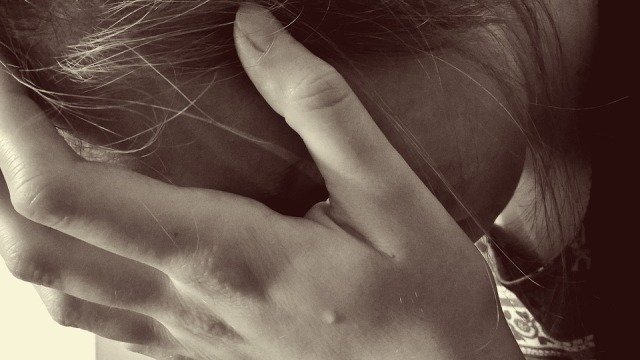Blog by Shelly Beach
© 2017
Sunday, September 10th marked World Suicide Prevention Day
While I never attempted suicide, I have struggled with depression and several periods of life when I struggled with suicidal thoughts. I’ve never written or spoken much about these battles, but perhaps my story can help someone gain perspective on their own depression.
I experienced a childhood sexual assault when I was around ten years old. I never told anyone what happened because of overwhelming fear and shame. I was in trauma therapy for weeks before I even remembered the experience. My most profound experience of abuse occurred when I was 19 and assaulted by a serial rapist. I experienced a number of symptoms of PTSD but did not receive counseling or treatment.
I was married within a year of my assault. Sex was awkward and triggering. Within six months of our wedding, I was pregnant. For the two years following the birth of our first child, I slowly became frozen. The slow onset of depression can be difficult to name when everything in life seems to be “fine”: a wonderful husband, a new baby, supportive family.
But my husband Dan and I call the years after our first child was born the years of “the brown robe.” I seldom dressed, unless it was necessary for me to leave the house. When I was home, I sat in a chair and stared at the television or wandered the house in a fog.
I didn’t have the words to identify depression. I didn’t know that the birth of a child could trigger depression after sexual abuse. I simply fell into deep guilt-driven depression over my lack of ability to be a “good” wife and mother.
Right about this time, Dan and I moved to a small farming community. He worked as a school administrator. I taught English. Community life was wonderful. Our friends were wonderful. We lived in a large country farmhouse with charm and character (and a few bats).
But I was deeply, deeply depressed. I was suffering from horrible migraines and had been put on new medications that I later learned could contribute to depression. But for hours at a time I fixated on how better off my family would be if I would be gone, that I was a failure as a mother and wife. I knew I was too cowardly to actually follow through, but I devised various plans for taking my life.
All this time, I never considered telling someone, asking for help, talking to my doctor. I simply saw myself as a failure. I didn’t understand that my depression was result of multiple untreated traumas, and what I was experiencing as common to many women.
I eventually went off my beta blocker medication, and my suicidal thoughts and depression faded. I began to study trauma and PTSD and understand what had happened. The shame and guilt lifted, and I found appropriate treatment.
Does this mean I never ever struggle with depression? No. My multiple sclerosis is also a contributor to depression, so I need to be pro-active.
So what can you do? I can tell you what helps me.
I monitor my self-talk. When it slips into negative thinking, I correct it with the truth–about who I really am.
I get out of the house. No matter how I may feel, I make time to see Christian friends who hold me accountable and speak life into me.
I listen to uplifting music. For me that’s a lot of Christian music, but it’s also beautiful music, fun music, and contemplative music.
I know my trauma triggers and manage my responses. For instance, I know that I can only manage a certain amount of grief regarding abuse. People naturally share their stories with me, but
I take anti-depressants when needed. This has actually been quite helpful since receiving my MS diagnosis. I don’t tolerate sunlight well and am susceptible to depression. A low dose of anti-depressant has contributed to my overall health.
I exercise. Moving elevates my mood and breaks the patterns of my circular thinking. And exercise always makes me feel productive and generates impetus for me to do the next proactive thing for the day.
Most importantly, I pray. I am a conqueror through the power of Jesus Christ, and I access the power of the Spirit through prayer and time in the Word of God.
What about you? Have you struggled with suicide and depression? What has given you hope?
National Suicide Prevention Hotline: 1-800-273-TALK (8255)
Online chat also available at https://suicidepreventionlifeline.org
